#Marlon Riggs
Explore tagged Tumblr posts
Text



Tongues Untied (1989) // dir. Marlon Riggs
844 notes
·
View notes
Text
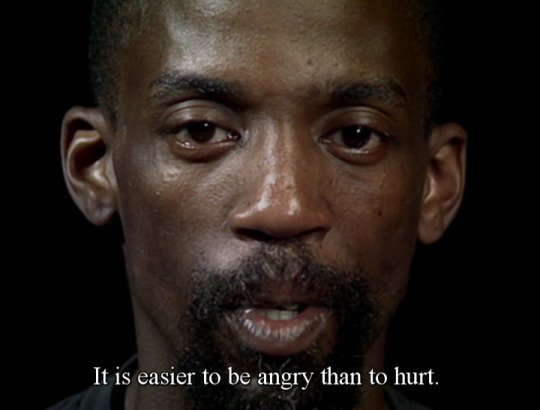

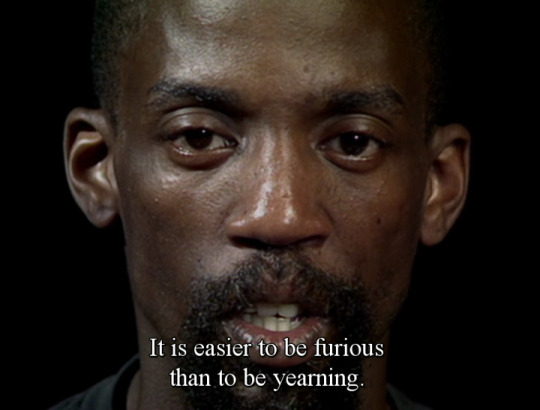
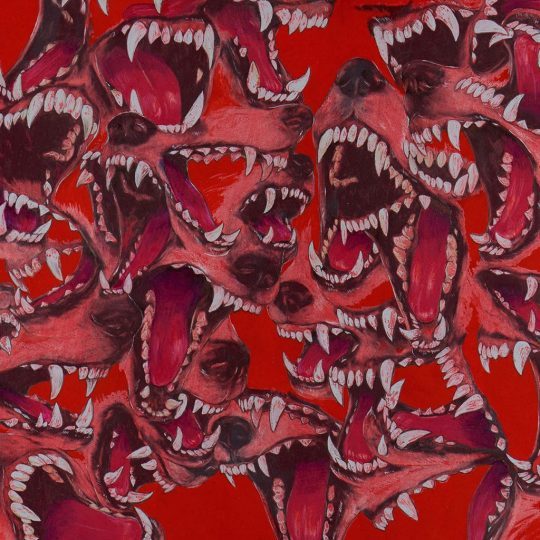



generational anger. Tongues Untied (Marlon Riggs, 1989) / The Noise Must Become Music by Fumi Nakamura / Grief Lessons: Four Plays by Euripides, Anne Carson / The House with the Black Door by James Hutton / Why Be Happy When You Could Be Normal?, Jeanette Winterson
#anger#webweave#webweaving#web weaving#parallels#art#poetry#marlon riggs#fumi nakamura#anne carson#james hutton#jeanette winterson
2K notes
·
View notes
Text










TONGUES UNTIED (1989) dir. Marlon Riggs Marlon Riggs, with assistance from other gay Black men, especially poet Essex Hemphill, celebrates Black men loving Black men as a revolutionary act. The film intercuts footage of Hemphill reciting his poetry, Riggs telling the story of his growing up, scenes of men in social intercourse and dance, and various comic riffs. (link in title)
#tongues untied#lgbt cinema#queer cinema#us cinema#gay#lgbt#usa#marlon riggs#1989#Essex Hemphill#1980s#80s#80s cinema#1980s cinema#north american cinema
42 notes
·
View notes
Text




Tongues Untied (1989), dir. Marlon Riggs
75 notes
·
View notes
Text



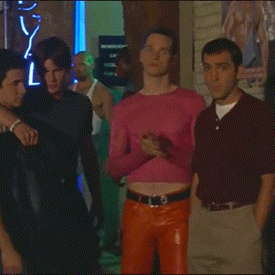





Things That Definitely Made Me GAY (Part 2):
MUSIC ICONS: Part of my Coming Out would be incomplete without the music that found me during that time. I’d wager my survival had every bit to do with the singers, songwriters and entertainers I was playing at the time. I especially credit Madonna, Janet Jackson, Barbara Streisand and Rufus Wainwright. They were the unexpected heroes in my ears everyday reminding me it was okay to embrace the dramatic, funny, complex, sexual situations of life in song.
FILMS: I am a firm believer that people are always searching for bits of themselves in the movies. So, being the teen I was, I wanted to find parts of my being in the movies to be affirmed that I wasn’t alone. Whether it was a documentary or rom-com, I wanted to escape into a potential future or an idea of what it looked like to be a gay man in 2009. Documentaries were a gift from heaven because I got to see where we had been and where we were going. I still feel that way as a 30 year old. I feel like I still am eager to see stories of us and find parts of myself on celluloid.
VOGUEING/PARIS IS BURNING: This movie quite simply changed and saved my life in a LOT of ways. When Madonna’s Vogue (BEST SONG FOREVER ON REPEAT) came into my life, my godmother introduced to me to the Houses of New York City, the Ballrooms and the origins of Vogueing. I had never felt so seen as a black gay person in a film prior to seeing PIB. It was the antidote to existing in a suburb in Washington. To know I wasn’t alone in the world and that there was a place beyond Washington where people like me exist, was (and still is) the greatest gift anyone, especially from kin, could’ve given me.
QUEER AS FOLK: THIS SHOW TOOK ME THERE. I remember hiding the box sets at many friends’ houses when I first had come out. While the show can be a bit dated, the stories and original characters really shaped what being a part of the LGBTQ+ community could potentially be as I grew into adulthood.
HISTORY: When I first came out, I made it my personal mission to read up on all things gay history to understand who came before me and whose footsteps I was walking behind. I found so much solace in the bravery we displayed as a community. I know that I am free to be me because of the folks who came before me. I hope that as time goes on, we discover more unsung gay heroes.
HEROES: I went out to of my way to find people who were like me and people who had the same interests as me. Finding people who made me feel understood and created the work to express all the facets of not only the human experience but the gay experience. Whether it be through dance, poetry, filmmaking or photography, I credit these artists for saving my life through their work.
FATSO: Some kids first cartoon crushes were Aladdin, Hercules, HELL, I could even bet that some had crushes on The Beast, BEFORE HE BECAME HUMAN! Me? Mine was (and still is) Fatso. Some have read him as a queer coded character and for my sake, I really hope that it’s true.
PORN & The Pornstars That Make Em’ : As weird as it may seem, discovering Porn really helped me feel liberated and free to understand my sexuality and what I really liked. Also..boy, oh boy, the men and the videos that still to this day..get me off is a list that’s too long to count. From Zeb Atlas to Tom Katt, these men served the fantasies that were so hot and beefy, I still can’t believe my eyes. Being gay certainly has its perks.
NOAH’S ARC: In the same vein as QAF, Noah’s Arc made me feel not only seen as a gay man but as a black man. I love that the show gave the community so many versions of our existence. Making us more than a side character or the uplifting and sassy character, at that. We were portrayed as human and proof that we exist.
#andrewisdoing#things that made me gay#pride 2024#coming out#janet jackson#madonna#troye sivan#barbra streisand#george michael#whitney houston#janelle monae#queer as folk#noahs arc#paris is burning#vougeing#larry kramer#harvey milk#james baldwin#sylvia rivera#marsha p johnson#act up#matthew shepard#stonewall#marlon riggs#herb ritts#alvin ailey#fatso mcfadden#gay movies#gay#andys gifs
95 notes
·
View notes
Text

Marlon Riggs 1957-94 Essex Hemphill 1957-95
youtube
youtube
Tounges Untied dir. Marlon Riggs, poetry by Essex Hemphill
"If His Name Were Mandigo" poetry & reading Essex Hemphill
#marlon riggs#essex hemphill#gay black men#black men#black artist#gay men#gay artist#aids#aids activism#world aids day#what is remembered lives#Youtube
17 notes
·
View notes
Text
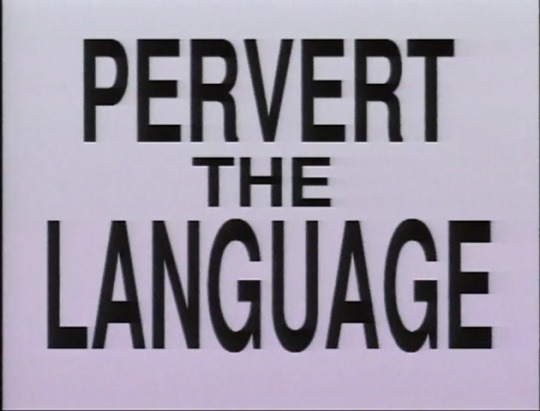
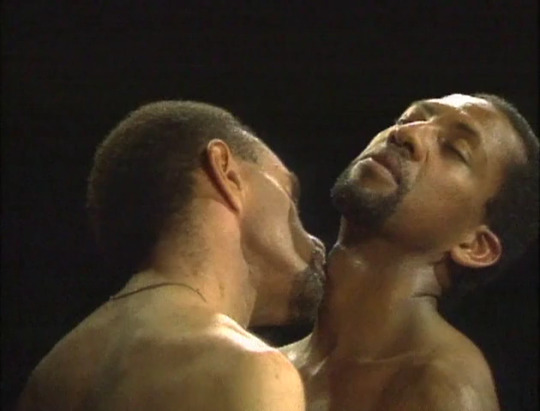
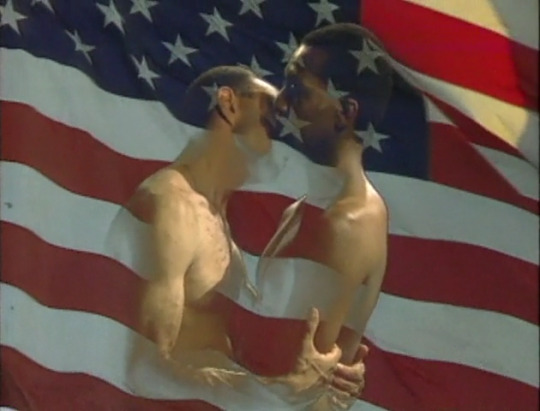
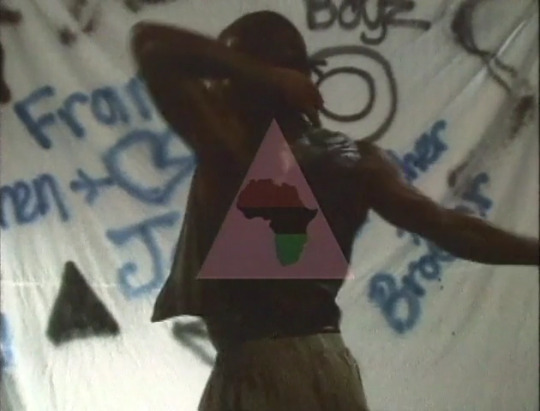

Anthem (Marlon Riggs, 1992)
81 notes
·
View notes
Text
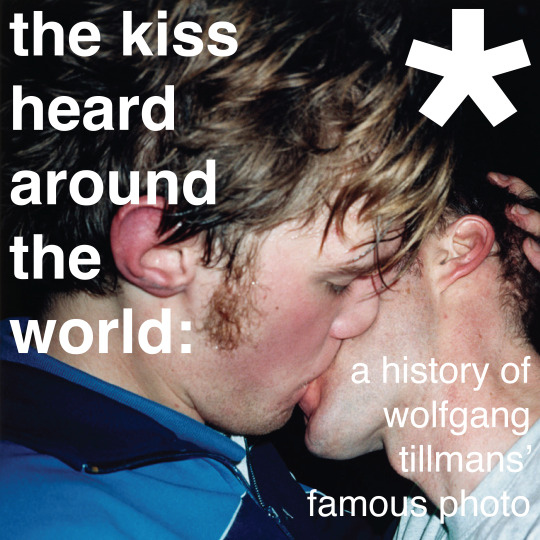

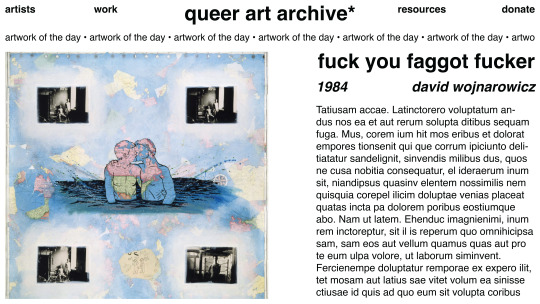
queer art archive website mockup , 2023, digital
#communications design#fashion institute of technology#graphic designer#graphic design#layout design#webdesign#illustrator#queer art#queer artist#mockup#david wojnarowicz#nan goldin#chantal akerman#wolfgang tillmans#marlon riggs#ryan trecartin
34 notes
·
View notes
Text
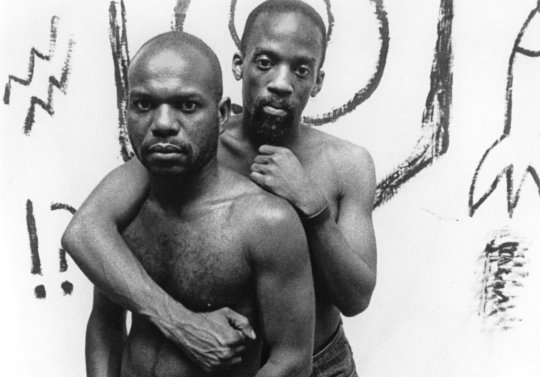
. Black men loving black men is the revolutionary act.
Tongues Untied, Marlon Riggs (1989)
#Marlon Riggs#Joseph Beam#Chris Harris#Essex Hemphill#Reginald Jackson#Steve Langley#Alan Miller#Donald Woods#Vivian Kleiman#Alex Langford#1989
20 notes
·
View notes
Text
youtube
I was looking for clips of Blackberri (the activist and musician). He appeared in several documentaries in the 70s and 80s, but I didn't realize he was in Tongues Untied or that he had his own album in 1981.
"From early on as well, it was clear Blackberri was born to make music. He picked up the harmonica at age nine, and soon was playing just about any song that came out of the radio. His love for music was temporarily derailed in 1965 when Blackberri was drafted into the US Navy. Life took another turn for the worse when a shipmate turned Blackberri in for being gay, and he was discharged."
--Outword Magazine 2017, Blackberri Interview
Blackberri passed away in 2021.
#black history#lgbtq history#black queer history#queerhistory#1989#tongues untied#marlon riggs#essex hemphill#blackberri#Youtube
4 notes
·
View notes
Text







Tongues Untied (1989) // dir. Marlon Riggs
340 notes
·
View notes
Text






black is … black ain’t, 1994 marlon riggs
3 notes
·
View notes
Text
youtube
2 notes
·
View notes
Text
#30DaysofPride: Day 21- Essex Hemphill
I wrote this post last year when I was interning at CLAGS and so it’s a little CLAGS-centered but I really like this one!!! So today I bring you an important person in the black gay community, Essex Hemphill. Property of the estate of Robert Giard Essex Hemphill was born in Chicago and grew up in Southeast Washington, DC. A poet and performer known for his political edge, he openly addressed…

View On WordPress
#30DaysOfPride#activism#Essex Hemphill#Hold Tight Gently#lgbt#LGBTQIA#Marlon Riggs#Martin Duberman#queer#queerhistory#trans#visibility
2 notes
·
View notes
Photo
It was I think 93 maybe ninety-four I was eating out with some friends at a Chinese restaurant on Seventh Avenue right below Christopher Street and I saw Mr. Riggs leaving, I don't usually do this, but I stopped him and thanked him for his excellent body of work. I didn't know it then but he was dead within a year or less. But his body of work influenced and helped to shape my young gay identity, it was such an honor to have a brief moment with him.




Marlon Riggs - Tongues Untied (1989)
7K notes
·
View notes
Text
VIDREV ADDENDUM: "Everything Is Content Now" by Patrick (H) Willems
[originally posted september 14th 2023]
youtube
On the internet, you're not an artist, you're not a film-maker… you're a content creator.
in my last review, i talked about the Patrick (H) Willems video "A.I. Filmmaking Is Not The Future, It's a Grift." i don't want to get into the habit of reviewing essays from the same channel over and over, but this one is a direct extension of his prior video and bears some discussion of its own. "Everything Is Content Now" takes to task the proliferation of online artists of all stripes referring to their work, regardless of form or effort, as "content." once again, i feel a deep kinship with Patrick on this one. i've watched in horror with each passing year as "content" has caught on as a popular descriptor of contemporary online media, and have similarly railed against its use among friends to little avail.
let's get this particular soap box out of the way early. don't call your work "content" for crying out loud! and ESPECIALLY don't call yourself a "content creator." that's not how human beings talk, that's how executives talk. have some self respect! have the audacity to state without a doubt that your work is bigger than the means of its distribution, because it IS! i don't want to make "content" for someone else's platform, i want to make something that's mine and that lasts beyond this eternally commodified present tense. you don't have to feel the same way about whatever it is you make, even if you think of it as disposable… as long as you understand that what you make is the value of these huge corporations. without your "content," they are empty and worthless. don't let them define the terms of your labor.
On YouTube, it's us creators who are doing the work and the people who run the platform are encouraging us to make more and more of it, so people will stay on their platform for longer. See, the content mindset discourages risk and experimentation-- the way platforms like YouTube run is that creators are encouraged to find one thing that works, one formula or type of video, and repeat that over and over again forever. If we experiment or try something different, we're told that our audience will abandon us.
of course, this is the eternal struggle of those who believe good art takes work and time against those who want a product that will make them money regardless of its contents (ironically enough). as is always the case with discussions of new twists and turns in the story of "late-stage capitalism," nothing happening right now is new, and it behooves the exploiters of today to frame what's happening as if it is somehow completely unprecedented. to my surprise and delight, in Everything Is Content Now, Patrick quite simply goes the fuck off about all of this and more, beginning with an enlightening history of the word's use in mid-century media studies through to the present day, reflects on its roots in the maniacal vision of a notorious Bill Gates letter, touches on the philosophy that the word implies, until finally identifying the profit motive itself as the cancer that's led us to this moment.
in short, it's a great work of materialist media criticism-- that is to say, it's criticism which cuts through optics and ad copy to the material conditions underlying the question itself (i reflected on the importance of materialist criticism briefly in my video about video essays earlier this year). definitely not what i expected from a Patrick Willems video, and it's a welcome surprise.
although i will say, he spends the first seven minutes and forty seconds torturously hedging on the merits of even doing this essay in the first place, debating an imagined audience accusing him of being a pretentious gatekeeper. worse, he reprises this critical pre-litigation later before the section on "the philosophy of content" because, i guess, only pretentious douchebags use the word "philosophy"? so you need to, like, justify it? it's a brief interlude compared to the girth of those wishy-washy opening minutes, but it's such a self-defeating note to begin what's to my mind the strongest part of the whole video.
this is, in my opinion, one of the cardinal sins of video essay writing: overly pre-empting the audience's response by acknowledging the most obvious criticisms in advance. Now I Know What You're Thinking Comma But. i understand the impulse, and certainly have wasted a lot of words trying this in my own videos. but it never works! it just doesn't. the people you're worried will miss the point are going to miss the point no matter what you do. in practice, all this hedging ever seems to accomplish is tack on superfluous minutes of she-doth-protest-too-much, giving a bad first impression that the essayist is themself embarrassed of the point they're trying to make. you're more likely to bore off the people who would agree with you by doing this than you are of preventing tree-lookers from missing the forest. and like, who even are these blockheaded commenters anyway? did they go to film school? have they even watched a movie made in the 20th century? how many of them are teens and twentysomethings who don't know shit about fuck? ask yourself if you think it would be worthwhile debating you-at-20 on any subject of actual importance. if the answer is "yes," fuck you, you're lying. life is short and so is the attention span of the average youtube user. and frankly, you have no idea how many viewers who aggressively miss the point now will, nevertheless, find your words rattling around in the back of their head until someday, a month from now, a year, ten years, whatever… they independently come to exactly the same conclusion you did, and insist it was their idea. fittingly enough, this is an angle that the "content creator" mindset absolutely cannot accommodate.
(if you'll permit me another moment to shill my own stuff, i spent a lot of time in the scripting phase of my Tunic video excising many moments of defensive self-doubt, and as a result i think it's my tightest essay by a mile.)
all of that said, i don't want to be too harsh on Willems here. seven minutes forty is a loooong time to be hedging, admittedly, but i hear in his voice and see in his eyes the manic energy of someone deeply frustrated at the intellectual incuriousity encouraged by our stubborn and dismissive culture, who just wants to be heard for once god damn it. it's the desperation you experience when you've spent years dying on a hill you believe is absolutely essential to defend, that others around you dismiss with such casual assertiveness it's clear they think you're crazy for even giving a shit in the first place. when you've been in that place long enough, you feel like you're automatically on trial every time the subject comes up. as a LOST defender and a Homestuck defender, i sympathize.
should've just gotten right to the point though.
thankfully, everything else in this video is delightfully on task. so much so, in fact, that anything i'd have to say about it would just be restating what Willems already said. since i prattled on endlessly in the previous Willems VIDREV, i figure here i'll just share a few choice quotes with a bit of commentary and call it a day. the big piece of context needed here is Willems' discussion of the infamous Bill Gates letter from the 90s that said "Content is King." this is one of those things i know i knew about at some point, but had completely forgotten as a relic of another age. it's genuinely shocking to me how clear-eyed his focus was. i don't want to say "he was right about the internet," because that's not true. in that letter, he laid out a very specific vision of what the internet could be as an engine of commerce, and then spent billions of dollars over more than 20 years to assure the emergence of that reality. it's like if Babe Ruth called his shot, then bribed the pitcher, completely rebuilt the stadium, and altogether altered the rules of baseball internationally so that the only possible outcome was the shot he called. still impressive, but for wholly different and significantly more horrifying reasons.
anyway, here's some quotes.
Bill Gates's essay doesn't mention art a single time. He describes the potential of content entirely in commercial terms.
here Willems pauses to point out that sometime in the late 2010s, youtube's creator dashboard silently switched out the word "video" for "content." i'm not sure i ever explicitly noticed the change, but it feels to me like a very relevant bit of evidence considering the outsized effect youtube has had on the social media landscape of today.
["Content" as a blanket noun] boils everything down to entirely business terms. It takes art, and makes it a product. There has always been a tension between art and commerce. In the US, mainstream cinema and TV exist almost entirely within the confines of capitalism. Everything is for profit. There are no national funds for film-makers the way there are in other countries, and the state subsidies mostly benefit major studios. In the US, mainstream art rarely exists without a profit motive to begin with. But the rise of streaming and the idea of "content" made this more overt than ever. If everything has the exact same value, which is to say value as a commodity but no cultural or artistic value, then nothing really has value at all, because you can just throw it away if that happens to be more profitable.
the absence of federal arts funding in America is one of those things that i try very hard not to think about too much because if i do i start seeing red. i'm exactly old enough to remember PBS in the 90s and the absolute glut of educational programming for kids (often imported from Canada). that stuff was federally funded! i recently discovered the work of film-maker Marlon Riggs, an experimental documentarian of the 80s who was black, gay, and tragically died of AIDS. his film Tongues Untied is, in many ways, a profound predecessor of the video essay as we know it today. it's one of the most affecting works of art i've ever experienced in my life, and it was funded by the government and aired nationally on PBS. this caused a huge scandal among white suburban fascists who successfully campaigned to annihilate federal arts funding in the United States.
watching Tongues Untied for the first time was a powerful, radicalizing experience for me because it embodies so much of the ethos i try to put into my own work. how could i not compare it to my Transitioning video, a similarly experimental video essay about the messy space between genders, which i made as part of a college class on cultural film-making? i watched Tongues Untied and felt both moved and a little defeated, because i've struggled to match the high water mark i set for myself with Transitioning ever since. Riggs did that in 1989, and yet i struggle to just set up a halfway decent-looking mid shot for a youtube video? but then it dawned on me the institutional help that was at his disposal, not just in terms of facilities but in terms of financial assistance.
how on earth do we expect anyone to produce art of any meaningful quality in a world where you are expected to do everything by yourself and on your own dime? why have we completely accepted the notion that it's not the government's place to enable the creation of subversive, experimental art that isn't for everyone? or even enable the creation of useful, mainstream educational programs that are well-researched by actual experts? the best we've got today is state tax rebates, which reverse the equation-- instead of giving you money to produce the thing, they agree to reimburse you for a percentage of the production costs spent in-state. it's government arts funding for people who already have the money to make it, namely huge corporations like Disney.
What is my actual issue here? Like sure, some of the culture around independently producing work for the internet sucks, but that's not news. But when we return to Bill Gates, and his original message that so completely caught on and never went away, "content" as a descriptive term means literally everything… which means it's essentially meaningless. "Content" is everything on the internet, and so it flattens everything and says it's all the same. I would love nothing more than for online work and… I'll say it just this once, "content creation" to be raised up and taken seriously. But instead, the content mindset just drags traditional media down into a giant ugly pit and it all becomes this homogeneous goop, just waiting to be half-heartedly consumed and discarded. "Content" is the word of the executives, and if we want to get really extreme about it, it's the language of the oppressor. And I know how hypberbolic that sounds coming from a white dude who isn't actually oppressed, but look at what's happening around us. Artists in Hollywood are fighting for their livelihoods because, to the studios, both they and their work are disposable. And if the suits had their way, they would replace their writer's rooms with chatGPT tomorrow, and their actors with CGI versions of extras they scanned without informed consent, and whose likeness they now own in perpetuity. I don't know if the strikes will directly benefit me as a guy who makes videos on YouTube, but I do know that if they succeed, it'll represent a much needed sea change in how we value art and artists.
i feel much the same way about the ongoing double-strike, in that i have no idea what if any downstream benefits it will provide for me as someone who swims in the murky waters just outside of "film-making," yet still i desperately want them to win all of their demands. the list of things that need to happen in this country to make "the future" a thing that we aren't living in constant fear of is tremendously long, but kicking these media corps in the shins is pretty far up there as a start. the font of their wealth relies on the assumption that they are the ones creating their market value, and it simply is not true. i worry a lot about the future of youtube and my place on it. where does my stuff wind up when google inevitably shuts the service down? eventually it is going to come to that. the dark side of the information age is that digital information is remarkably easy to erase. in twenty years, how will today's "content" be remembered? how much of it will even be accessible? in a hundred years, will we be looking back on this era with the same frustrated grief we feel today looking back at the unquantifiable expanse of silent films, many created by women and people of color, that were destroyed when they could no longer generate value?
something has to change. in my wildest dreams i imagine a publicly funded youtube-like as a tertiary branch of a national streaming library that is freely accessible to all. how we actually get there is a fucking mystery. but, as is the case with all our other communist utopian dreams like mass public transit, free healthcare, free education, and free housing, it's a project that will take a lot of time, patience, work, and honesty. it's the project of a lifetime, and it won't be realized as soon as we'd like. but i think it's notable that more and more presumably-liberal creators, like Patrick (H) Willems, are speaking with clear eyes towards the undeniable material conditions of this moment, refusing to let corporate suits dictate the terms of the conversation. this punishing, perilous now cannot last forever, even though it feels like change is impossible.
but it will feel impossible right up until the moment it isn't. that's why hope (as Mariame Kaba says) is a discipline.
anyway Patrick Willems made a good video and you should go watch it.
#vidrev#video essay#video essay review#video recommendation#youtube video#patrick h willems#marlon riggs#content#Youtube
0 notes